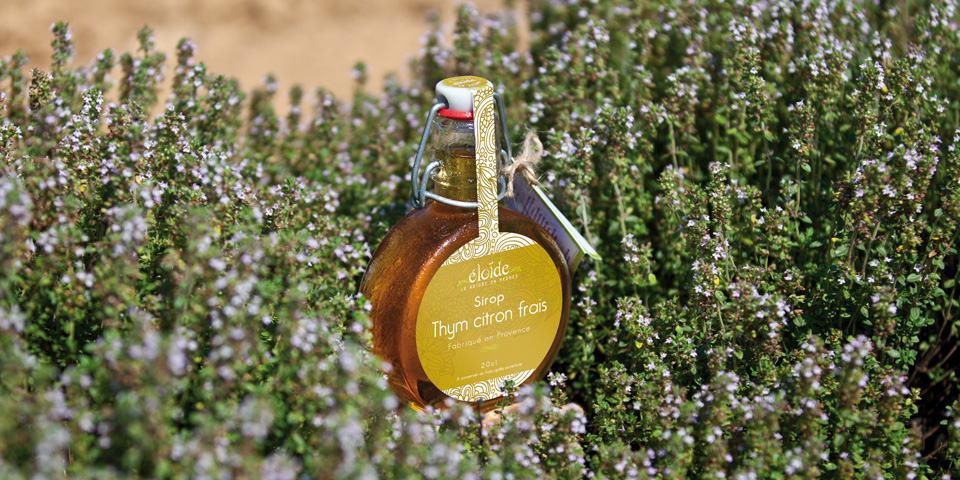The thyme lemon:
Even if my grandmother didn’t make an intensive farming, she enjoyed to grow some plants at the foot of the rocks which showed on the surface in the southern end of the garden. They had come to seed there naturally, and nothing else would have been able to grow in this arid space. Their roots had found some spaces in the rock and drew out the humidity which was enough for them.
My grandfather, subject to crisis of particularly impressive coughs after, having eaten almonds of which he was being very fond, was rapidly calmed by a drink of this syrup. The freshwater which accompanied this drink indeed had to make its effect also!
Virtues:
The Thyme lemon is tonic, it fights anaemia and increases physical, intellectual and moral force. Antiseptic general, the thyme is recommended to treat bronchitis, cough, anginas, influenza, and states of fever. It stimulates the digestive tract, preventing fermentation while avoiding drowsiness after meals. Wormer, it is used without danger for children. It relieves
rheumatisms, drop, arthritis. One by way of mouthwashes to tone gums up, alone or linked.
His virtues are numerous. It would be: digestive, diuretic, expectorating, hepatic, invigorating, tonic, antirheumatic, cough mixture, healing and antiseptic!
The plant:
Lemon-flavoured aromatic plant of the family of Lamiacées and having small leaves. This plant comes from a crossing between Thymus pulegioides and from Thymus vulgaris.
It is a small bush (15 in 20cm of height) leaves of which have a lemon-flavoured taste (as its name points it out) and those of the thyme are broader and more round than the ones found in the garrigue of Provence. Growing wildly on the Mediterranean coast, the thyme lemon has, in autumn, flowers of crimson or lilac colour.



